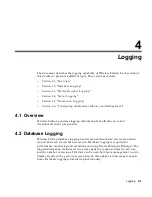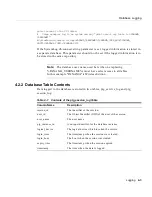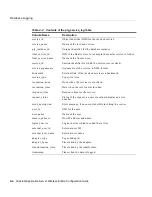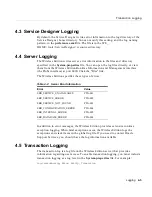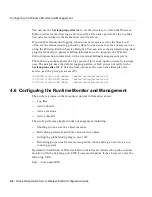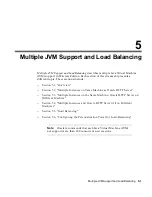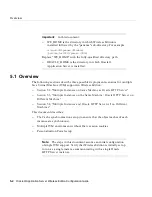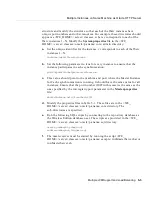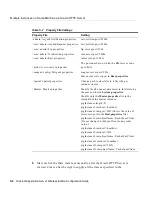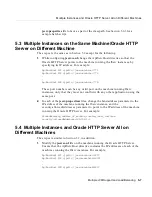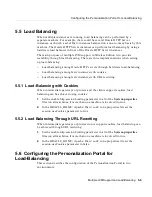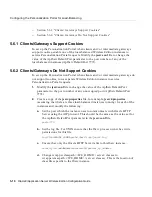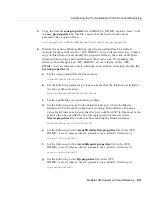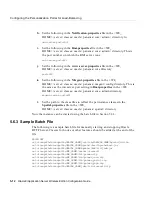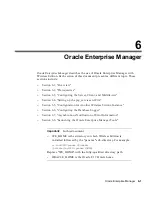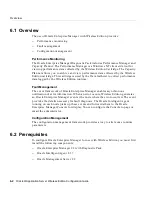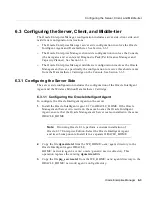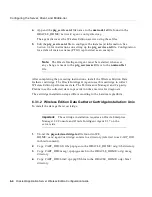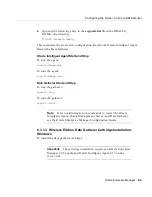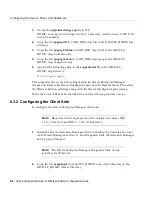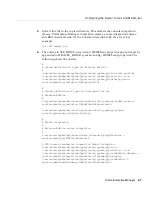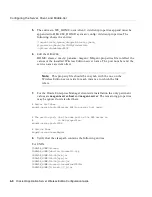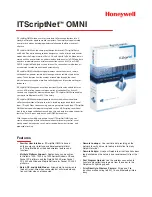
Multiple Instances and Oracle HTTP Server All on Different Machines
Multiple JVM Support and Load Balancing
5-7
jserv.properties
file to Java as part of the classpath. See
Section 5.6.3
for a
sample batch script.
5.3 Multiple Instances on the Same Machine/Oracle HTTP
Server on Different Machine
The steps are the same as in
Section 5.2
except for the following:
1.
While configuring jserv.conf change the ApJServHost directive so that the
Oracle HTTP Server points to the machine running the JServ instances, by
specifying its IP address. For example:
ApJServHost PC1 ajpv12://jserv-machine:7771
ApJServHost PC2 ajpv11://jserv-machine:7772
.
.
ApJServHost PCN ajpv11://jserv-machine:777N
These port numbers can be any valid port on the machine running JServ
instances, only that they must not conflict with any other application using the
same port.
2.
In each of the jserv.propertiesx files, change the bindaddress parameter to the
IP address of the machine running the JServ instance, and the
security.allowedAddresses parameter to point to the IP address of the machine
running the Oracle HTTP Server. For example:
bindaddress=ip_address_of_machine_running_jserv_instance
security.allowedAddresses=192.168.1.2
5.4 Multiple Instances and Oracle HTTP Server All on
Different Machines
The steps are similar to
Section 5.2
, in addition:
1.
Modify the jserv.conf file on the machine running the Oracle HTTP Server.
Ensure that the ApJServHost directive includes the IP addresses of each of the
machines running the JServ instances. For example:
ApJServHost PC1 ajpv12://jserv-machine1:8007
ApJServHost PC2 ajpv11://jserve-machine2:8007
.
.
ApJServHost PCN ajpv11://jserv-machineN:8007

